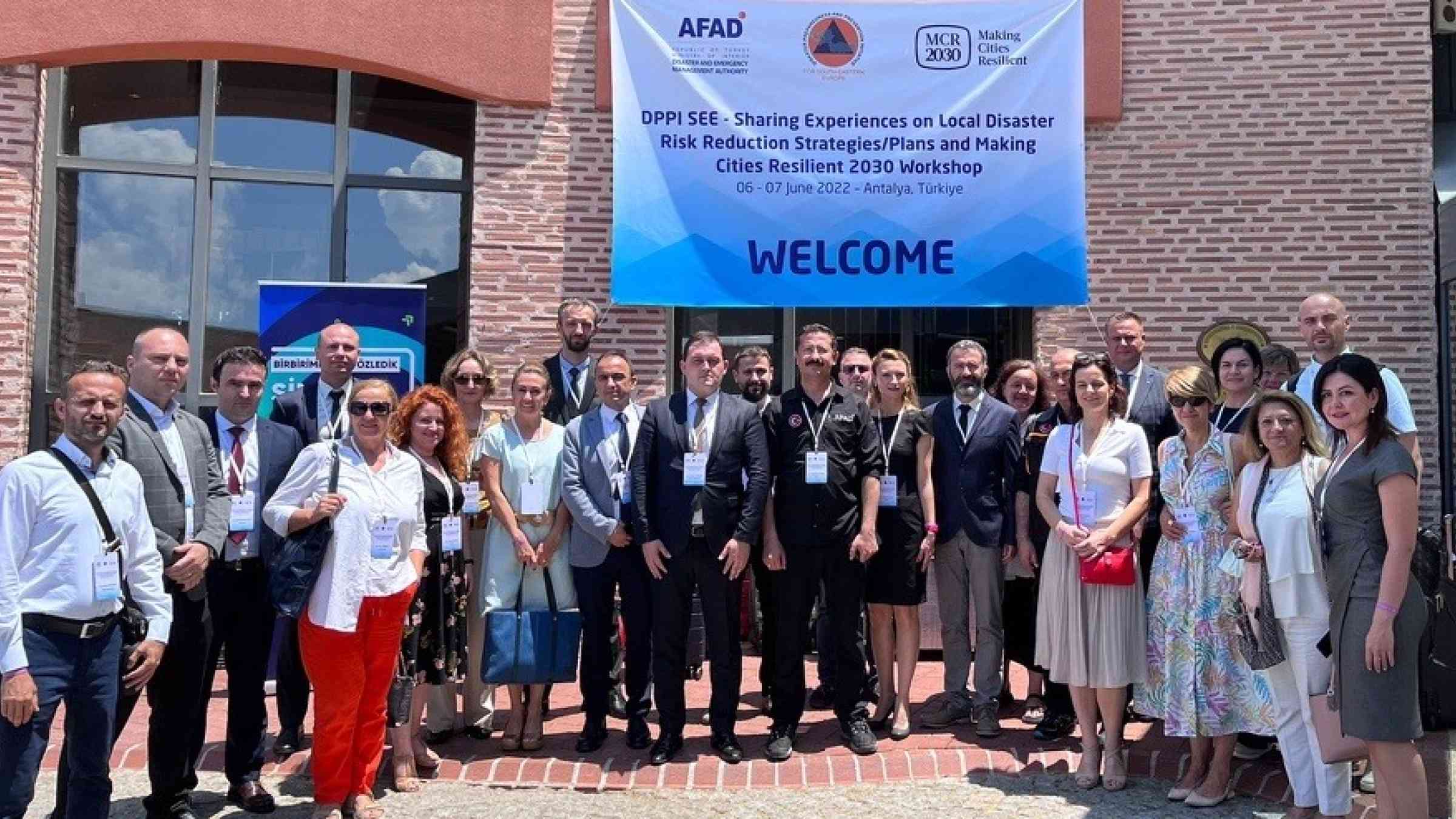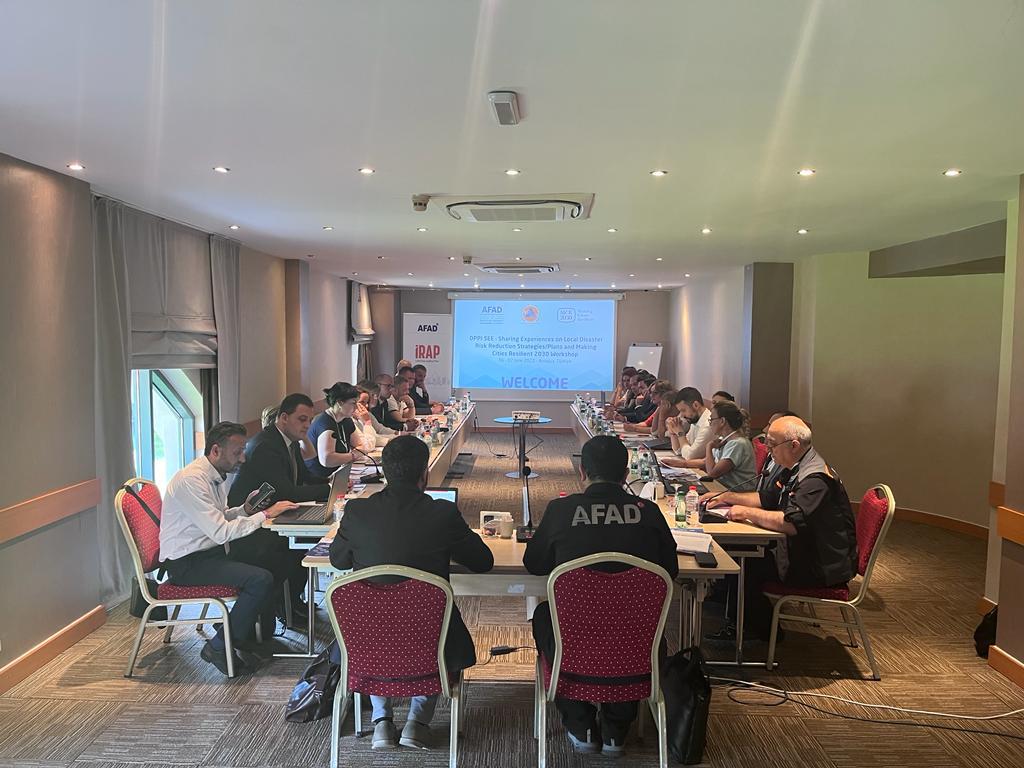UNDRR and DPPI SEE expand collaboration on local resilience-building in South-Eastern Europe

Along with the rest of the world, the South-Eastern European (SEE) region is experiencing rapid urban growth. This growing concentration of people and assets in a single location is increasing vulnerabilities to different hazards. The additional challenge of climate change means the risks associated with rapid urban growth are expected to intensify further. Without proper prevention and mitigation activities and plans, the consequences of disasters may not only slow down the development of the region, but also cause human and economic losses.
The Disaster Preparedness and Prevention Initiative for South-Eastern Europe (DPPI SEE), established in 2000, provides a framework for SEE countries to strengthen their capacities to prevent and respond to hazards. DPPI SEE is a key sub-regional partner of the United Nations Office for Disaster Risk Reduction’s (UNDRR) Regional Office for Europe and Central Asia (ROECA), working together to support member countries’ disaster risk reduction (DRR) capacities through training and technical assistance. Building on their collaboration in developing the INFORM Risk Index at sub-national levels in SEE countries in 2021/2022, UNDRR and DPPI SEE are now extending their joint support to local resilience building in the region through the Making Cities Resilience 2030 (MCR2030) initiative.
The DPPI SEE training program for 2022 is dedicated to disaster risk reduction. Two training sessions, focused on risk assessment and building local resilience, took place earlier this year, with the third workshop – planned for October – focused on disaster risk financing.
In May 2022, DPPI SEE organised its first workshop in Belgrade, Serbia, dedicated to national and local resilience assessments, where DPPI SEE member states exchanged knowledge and shared experiences on the development of national risk assessments, with contributions from partners including UNDRR ROECA. As a key outcome, a permanent working group will be established within DPPI SEE to discuss the topic of disaster risk assessments on a regular basis.
In June 2022, DPPI SEE in partnership with the Government of Turkey’s Disaster and Emergency Management Authority (AFAD) and UNDRR, held a second event in Antalya, Turkey, on local disaster reduction strategies and plans, and the MCR2030 initiative. Member states were represented at both national and local level and actively participated in the workshop and its discussions. AFAD presented its guidelines on designing local disaster risk reduction strategies, which were very well received by member states, and considered as an asset that could be applied to other geographical contexts as well. The second day of the workshop was dedicated to MCR2030, during which UNDRR AFAD and DPPI-SEE, along with other MCR2030 partners including the Network of Associations of Local Authorities in SEE (NALAS), UNDP and the Global Covenant of Mayors, introduced participant countries to the opportunity to learn about the tools, knowledge base and networking opportunities accessible to MCR2030 members. This information was welcomed by the member states and sparked vibrant discussions, which resulted in the identification of two important elements to be considered for supporting MCR2030’s success in the SEE region:
1. Strengthening the governance and frameworks required for the implementation of MCR2030 activities in the region. Although MCR2030 activities support urban resilience building, it is important that suitable modalities are in place to ensure that they are coherent with, and supportive of, the legal disaster risk management obligations of cities - including the preparation of risk assessments and contingency plans.
2. Ensuring coherence of MCR2030 activities and overall resilience planning. As with the legal basis, it is important that MCR2030 activities are directly integrated - both in practice and conceptually - into cities’ overall resilience planning processes from an early stage. This will ensure there is no duplication, or parallel efforts, and that cities capitalise on all available resources to develop and support their resilience strategies.

DPPI SEE workshop in Antalya
While successful examples of cities working on local resilience already exist in the region, MCR2030 has proven to be a valuable mechanism and platform for collaboration, which can instigate change processes at the local level.
As DPPI SEE joins the MCR2030 initiative’s Regional Coordination Committee in Europe and Central Asia, it is fully committed to supporting the initiative’s implementation in the region. Although DPPI SEE is focused on supporting disaster risk management at the national level, it also recognises the critical importance of supporting resilience-building at local levels.
DPPI SEE started collaborating with NALAS last year, bringing together the two organisations' expertise to supporting urban resilience in the region. This includes the development of a joint roadmap, which aims to increase the number of SEE cities joining MCR2030 and supports twinning and peer learning amongst cities and local governments, and the creation of MCR2003 Resilience Hubs. DPPI SEE and NALAS are committed, with the appropriate structures, mandates and networks in place, to offer real and measurable support for enhancing the resilience of local governments and cities in the SEE region.